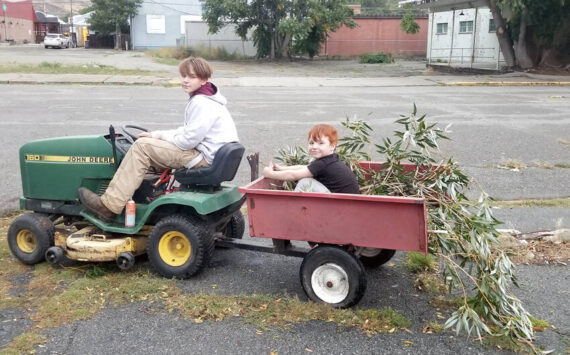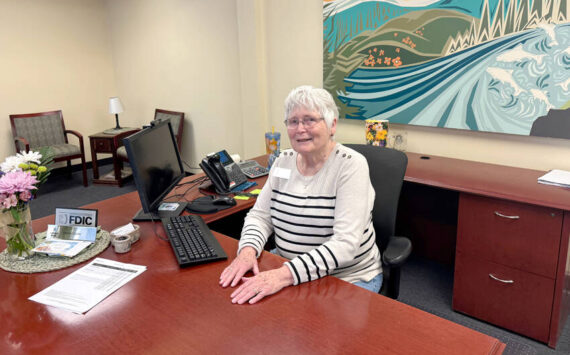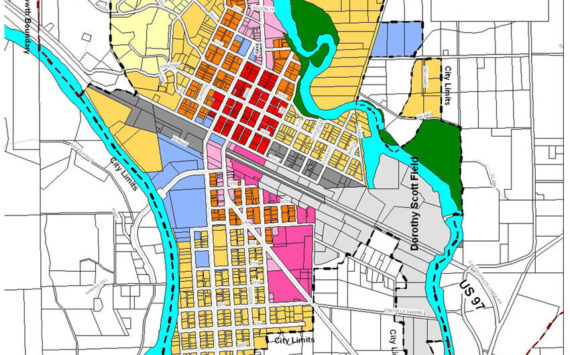TONASKET – According to Kelly Cariker, Chief Information Officer at North Valley Hospital, measures are being taken to further ensure the safety of patients and staff at the hospital and extended care facility.
“Things have changed over the last couple of years, and schools and hospitals are being looked at as ‘soft targets.’ We have a tendency to be open and friendly, and easy to get into,” reported Cariker. He pointed out that healthcare has a vulnerable population with patients in both long term care and acute care, and said that while staff members were instructed in the past to ‘run and hide,’ “just because we can doesn’t mean we should.”
According to Cariker, NVH had one lockdown and one police call in the last month. He said the hospital has the ability to lock off different sections of the facility.
“There have been instances in several departments over the last six months that demonstrate the need for increased security, while still keeping an open door and friendly facility,” Cariker said. He related an example of a neighboring facility that had a man enter the Emergency Department “with enough ammunition for three bullets for all of the staff on duty.”
Cariker said the man chose to end his own life instead of others, but the situation illustrated that “We can’t take an attitude of ‘not in this area,’”
Cariker described several policies undertaken at the hospital to make the facility safer, including putting together a volunteer security team.
“People really stepped up. We put out a policy that anytime someone feels unsafe, get ahold of someone on the security team,” Cariker reported, adding, “There is a perception in healthcare that dealing with difficult patients or being abused is part of the job, but that is not something we want to promote.”
Cariker said staff members have begun to attend GAP training through Force Dynamics, including training on deescalation technics and what to do if someone becomes violent; with a goal of having every staff member attend the training within the next three months and to have the security team go through advanced training.
Other measures include participating in a system where facilities throughout the state use the same codes to describe a situation when calling in an emergency. NVH installed panic buttons last year, with calls automatically going to the police.
“We have one of the best lockdown policies in the state, and every incident calls for a debriefing afterward,” Cariker stated.
Additional safety measures initiated in 2014 include flagging patient records of anyone with a tendency to become combative, and a vendor business policy to ID contractors on the facility “so people know they are supposed to be there.”
Cariker said the hospital applied for a $10,000 grant which, if received, will allow for additional training, more cameras and door swipes.
He also reported attending a regional meeting in Grand Coulee in July, and promoting a program called Roundtable NVH.
“There are fourteen medical facilities in it so far. We are looking at security audits and evaluating several companies that offer group discounts. People are coming from as far as Klicitat, and Moses Lake is attending as well,” Cariker said. “We share our ideas and tour facilities; we’ve seen five different hospitals now. Everyone has things they are proud of and things they want to improve on. There is a lot more sharing of information than has been done in the past.”
In other hospital news, Director of Patient Financial Services Jana Symonds announced she has been selected to speak in Chicago and Mobile, Alabama, about the hospital’s recent financial recovery.
“It will be a huge crowd; and I am so excited to tell our story,” Symonds said. The event is coming up in September.
Verhasselt reported that while bad debt is running higher than anticipated due to higher insurance premiums, expenses are being kept under budget despite a union contract for higher wages kicking in last pay period.
NVH has been assisting the accounts payable department at the Brewster Hospital while they advertise for a new Chief Financial Officer. They are on the same accounting system as NVH, so “it makes it very easy for us to step in and help a fellow hospital,” said Verhasselt. The hours spent assisting will be billed to Brewster.
The board approved a $6,810 equipment request for Surgery Air Controls.
“The current controls worked fine until we got into the really hot weather,” said Cariker. “We had to get a cooling vest for the surgeon—it gets pretty hot in there under those lights.”
Board member Dick Larson pointed out that surgeons like to keep the operating room at 67 or 68 degrees, as there was less chance of infection.
The hospital plans to consolidate all the buildings into one heating and cooling unit, and hopes to move forward with a geo-thermal project that depends, in part, on the city council approving an amendment that will allow for non-consumptive wells to be drilled.
Cariker reported the maintenance department making improvements in the system in the longterm care division, resulting in it “working better than it has in years.”
“In the past we had to take the lowest bids, as we were still in county warrants. Now we are looking at things that are the best fit for the facility. It’s a balancing act to stay out of warrants and debts, but anytime you delay maintenance it’s usually a little more expensive to catch back up.”




